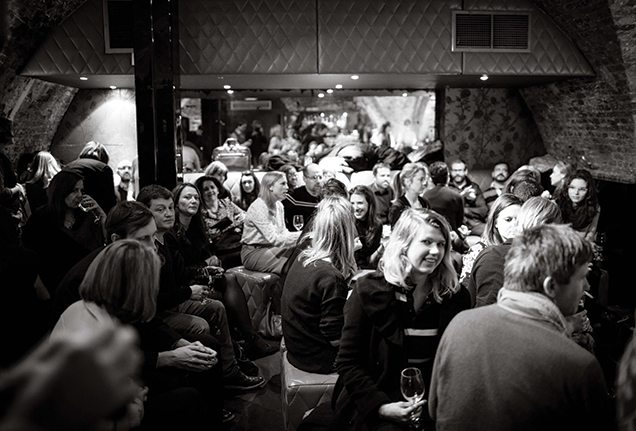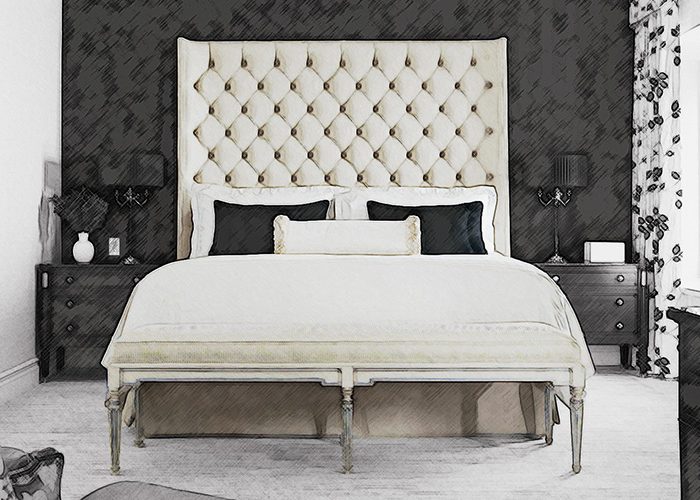In the fall of 2003, California teacher Toby Brothers moved to Paris for her husband’s job. For her, the romance of the move, the thoughts of idling away days along the Seine, were soon overshadowed by the realities of integrating herself into a new culture, learning a new language and settling into a new city. One evening, a chance encounter at a cocktail party led to an in-depth discussion of her passion for teaching and a favourite book—Beloved, by Toni Morrison—prompting a new idea. What do you do, as a literature teacher, to embrace your new environment in one of the world’s most cultured cities? Why, you set up a literary salon. This is Paris, after all.
Hotbeds of creativity and progressive ideas, salons are synonymous with the French Enlightenment. The salonnières most associated with the early days are women such as the colourful Madame Geoffrin, who ran arguably Paris’ most famous salon in the mid-18th century, hosting writers and artists. Women led many of the early salons in Europe, creating an important outlet for voices that otherwise might not have been heard. And women are often the catalysts in the current movement.
Today salons have had a renaissance, perhaps as a pushback against the decline of face-to-face human contact in our digital age. From poetry brunches to multimedia presentations in art galleries to scientific discussions in converted warehouses, these gatherings point to the universal need for personal interaction and mental exercise. They allow people to come together to increase their knowledge and hone their tastes through conversation and the exchange of ideas. Their mission is to allow debate, to stoke passion and to inspire.
“Part of my inspiration was Natalie Clifford Barney,” Brothers tells me, “another American expat who ran what was dubbed ‘the liveliest salon in Paris’ in the first half of the 1900s.” Brothers set up her own salon in Paris before moving again, this time to London. Now, her London Literary Salon is based in her living room, where patrons tackle such weighty authors as Joyce, Proust and Faulkner.
Salons are for the free exchange of any type of stories or ideas.
So, I tell myself, a salon is basically a book club. But I quickly learn that I’m oversimplifying: “We use the literature as a launch pad for deeper discussion,” Brothers explains. “It’s a means to an end rather than the end in itself. The literature is a road map to the bigger questions.”
My first lesson is learned: Salons are for the free exchange of any type of stories or ideas. Some salons marry a literary theme with a broader sense of culture or art. Inspired by an invitation to read from her then-in-progress novel at a SoHo art gallery, New York–based writer Vica Miller set up a multimedia salon in 2009. Her idea was to emulate the salons of 1920s Paris salonnière Gertrude Stein, with writers reading from new work amid contemporary art. “The multimedia component is important to me, as I love such synergies,” Miller says. “People connect on a different level because hearing a good story read aloud against a backdrop of amazing art is a transcendent experience.”
Other salons are completely removed from literature. I recently attended an event at Shoreditch House, a members’ club in a converted warehouse, organised by Salon London. The word “literary” doesn’t feature in its objectives of “Science, Art, Psychology.” Co-founder Helen Bagnall says, “People come from all disciplines and want community and intelligent entertainment.” So what’s up for discussion?
“In some ways, we’re what television should deliver,” Bagnall says. “If a salon works, the audience will hear something they’ve never heard before, pick up a new skill, and go away wanting to find out more.”
By the time the salon starts, some 50 people fill the room, with stools taken from the bar next door and standing room only. The Shoreditch House library seems more like a Lothario’s living room: huge velvet sofas, deep leather armchairs and faded Persian rugs. A zinc-topped table to one side forms the centrepiece of a makeshift but elaborate bar. David Nutt, a professor of neuropsychopharmacology, speaks on what medicines do to the brain. The subject: “The Truth About Drugs.” In the spirit of the salon, he sits, speaking in a conversational manner, inviting comments and questions. While it wasn’t a subject I would have expected for a salon, it was an insightful, witty, often challenging and thoroughly engaging affair, imbued with human interaction, laughter and the frisson of participation. I left energised, enlightened and intellectually stimulated. And I’d learned another lesson: Salons aren’t just a lot of people attending a reading or lecture. Even though modern salons may not be held in private sitting rooms and may be guided by a lecturer, the key is casual interaction and the exchange and growth of ideas.
London salons have become the vogue in recent years, and not simply for emerging writers. At the top of the list, playwright and journalist Damian Barr leads monthly events where established authors read from upcoming works and pitch ideas. The gatherings have gained such repute that they are now attended by the glitterati as well as the literati. Past sessions have featured the likes of David Nicholls, John Waters and Bret Easton Ellis. Barr has taken his literary salon abroad, too, holding events destinations like Istanbul. Which leads me to my next realisation: Modern salons aren’t held only in Paris, London or New York. (In fact, salons first developed in the Middle East.)
The trendy thing to do after iftar, the breaking of the fast, is to head out to various cafés for literary salons and open-mic reading nights.
The movement is gathering fresh momentum globally. Salons in the 21st century cross borders, languages and even the digital wall. In Dubai, amid a thriving arts and culture scene in the UAE, American expat, blogger and writer Danna Lorch has observed bibliophiles setting up their own discussion groups through Twitter and local literary festivals. “During Ramadan,” Lorch says, “the trendy thing to do after iftar, the breaking of the fast, is to head out to various cafés for literary salons and open-mic reading nights.” Here, the salon culture leans more towards poetry. It’s a tradition in the Middle East that dates back to the Middle Ages, with its recent incumbents led, in part, by Sheikh Mohammed bin Rashid Al Maktoum and his son, published poets who write in both English and Arabic.
Punch and The Poeticians, both run by poets, lead the new salon wave in Dubai. Punch is a short way of saying “poetry bunch.” Lebanese poet Zeina Hashem Beck organises the monthly event at BookMunch, a Dubai literary café. The Poeticians, founded in 2007 and also active in Amman and Beirut, is “an elastic entity welcoming anyone willing to share bits of their linguistic light with us in English, Arabic or French.” Both groups rely on Facebook for communication. So my next lesson, and perhaps the most surprising, is that yes, salons are about personal, often face-to-face, communication, but they aren’t forums for Luddites. Even if they develop as a reaction against the impersonal qualities of digital culture, today’s salons don’t distance themselves from the digital arena, but embrace it. Digital tools are encouraging salons to form and to grow: connecting people, distributing content, even offering salon events as podcasts.
Of all the salons around the world today, perhaps the Sunday Salon is the ultimate example of how salons are proliferating and reinventing themselves. Started in New York in 2002 by Alaskan Nita Noveno, the salon runs monthly events at Jimmy’s No. 43, a bar and restaurant in the East Village. Like many other salons, it was designed to encourage new writing and allow emerging writers to find an audience. It wasn’t long, though, before a counterpart group was set up in Chicago—and another in Nairobi. Thanks to Noveno’s use of the internet to encourage others to create similar groups, Salon Nairobi emerged in 2007 out of a partnership between Noveno and June Wanjiru Wainaina, founder of Kwani? Readings. Salon Nairobi has grown into quite the literary machine, publishing and distributing content, running festivals, offering tutelage, and making global connections.
This leads me to the most important thing I’ve learned about modern salons: In contrast to the aristocratic leanings of earlier salons, today’s groups depend on the principle of equality—of all opinions being valuable and up for discussion rather than attack. This latter point is something that’s often a lot easier to adhere to in face-to-face conversation; think of how much more tempting it is to dismiss an idea in, say, an online comments forum.
Literary salons have emerged for all manner of skill levels. Many offer a nurturing environment that novice writers may not find elsewhere. New York’s Pen Parentis, for writers who are parents, takes place in a hotel bar—with literary ambitions fuelled, presumably, by a much-needed cocktail. The Franklin Park reading series, held at the eponymous Brooklyn beer garden, features “emerging and established fiction writers, memoirists, poets and story-tellers,” highlighting “local talent and authors from around the world.” Lit at Lark showcases local authors in Brooklyn’s Lark café.
The environment may have changed, but the reasons for salons remain the same. “People get inspired,” says multimedia salon founder Miller. “Afterwards, writers have told me, they’ve gone back to their own writing desks to finish manuscripts in progress. Many have said they felt enchanted by the nurturing and creative atmosphere. New friendships are forged as people connect and have conversations on a deeper level, and a couple of writers secured an agent and a publishing deal after reading at the salon.”
The salonnière Madame Geoffrin would be proud.
YOUR JOURNEY BEGINS HERE
Select a destination and start exploring






